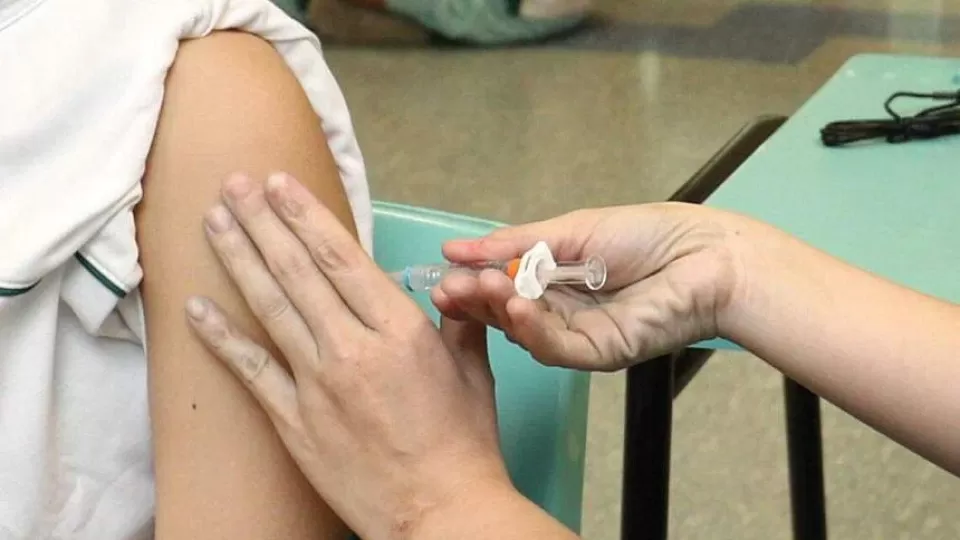March 31, 2023
SINGAPORE – The World Health Organisation’s (WHO) latest revision to its global Covid-19 vaccination recommendations for a new phase of the pandemic is still consistent with Singapore’s current approach that medically vulnerable persons receive a booster in 2023 and children aged five years and above get minimum protection, the Ministry of Health (MOH) said on Thursday.
WHO’s Strategic Advisory Group of Experts on Immunisation (Sage) suggested on Tuesday that only high-risk groups should receive ongoing Covid-19 booster doses.
This is because strong population-level immunity means ongoing boosting of the general population offers little impact, as seen during the Omicron stage of the pandemic, when countries saw high population immunity levels.
In its reply to The Straits Times, MOH said children aged six months to four years are recommended to complete two doses of Moderna/SpikeVax or three doses of Pfizer-BioNTech/Comirnaty vaccines, similar to what WHO has maintained – that primary and booster doses are safe and effective in children and teenagers.
Sage recommends additional booster doses for high-priority groups such as the elderly, immunocompromised people of all ages, front-line health workers and expectant mothers six or 12 months after their last booster dose.
For those at medium risk, it recommends primary vaccinations and first booster doses, but does not recommend routine additional boosters.
This group includes children and adolescents with health risks, and healthy adults under the age of about 60.
Healthy children and teenagers should be considered low priority, Sage said.
This means that for healthy children between the ages of six months and 17 years, countries should consider vaccinating based on factors such as disease burden and cost-effectiveness.
“The public health impact of vaccinating healthy children and adolescents is comparatively much lower than the established benefits of traditional essential vaccines for children – such as the rotavirus, measles and pneumococcal conjugate vaccines,” it added.
A spokesman for MOH said that by listing healthy children and adolescents aged six months to 17 years as a low-priority group for Covid-19 vaccination, WHO is advising countries to base their decisions on their own context, including factors such as health priorities and costs.
“Our local data shows that while the risk of severe Covid-19 infection in younger children is generally low, unvaccinated children infected with Covid-19 had a higher risk of requiring hospitalisation compared with infected children who were previously vaccinated,” the spokesman said.
“Severe disease can still occur in children, including pneumonia, MIS-C (multisystem inflammatory syndrome in children), and even death.”
In August 2022, Singapore’s director of medical services Kenneth Mak said at a media conference that the hospitalisation rate was 1.3 per cent among children aged five to 11 who were not vaccinated, and about 0.4 per cent for those who were.
It was based on these figures that the vaccine was offered to young children aged between six months and five years old to reduce the risk of a severe infection, he added.
Commenting on WHO’s suggestion that healthy children do not require boosters after the two primary shots, infectious diseases specialist Leong Hoe Nam said children do get very sick from Covid-19, and about one in 100 will need hospitalisation.
“The risk of a bad outcome and the much-dreaded MIS-C in children is one in 7,000. In contrast, the risk of any untoward event with an mRNA vaccine is in the region of one in 100,000. This is conservatively a 100-fold lower risk with vaccinations,” Dr Leong said.
Noting that vaccination for children is already voluntary, he added: “It is myopic, bordering on impulsive, to withdraw recommendations for vaccination for healthy children.
“If we were to include the potential risk of long Covid, which conservatively is at 5 per cent, we could be plagued with a significant number of paediatric long Covid patients. We still have little knowledge, and no treatment options for this condition.”
If the priority of WHO is older, high-risk groups, Dr Leong believes vaccinating children will add an extra layer of protection for the elderly.
MOH and the Expert Committee on Covid-19 Vaccination will continue to monitor the situation and developments in vaccines and, where relevant, will update their vaccination recommendations.

